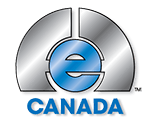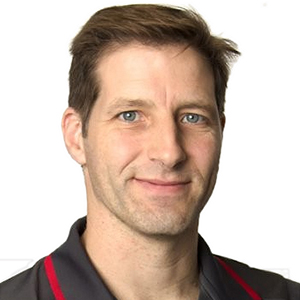Quality Engineering Technician - Non Destructive Evaluation (NDE) - 439
Overview
We are excited to announce that Mohawk College has been awarded over $20,000 in scholarships from the FEF (Foundry Education Foundation)! This includes conference attendance as well as experiential learning where students have the opportunity to work on "live" projects as part of their curriculum.
Program Highlights
- Technique courses are delivered by professionals from the Canadian Institute of Non-Destructive Evaluation (CINDE).
- Interact with a department that includes Mechanical Engineering Technology and Aviation programs.
- Top-ranked professors in their field.
What you'll learn
- Non-destructive testing (NDT) and inspection techniques (magnetic particle, liquid penetrant, ultrasonics eddy current, radiography).
- Safety procedures for industrial radiation sources.
- How to evaluate the properties of materials from production to processing to detect defects. Use codes and standards from various industries as accept or reject criteria.
- Detection of material defects that could cause unreliable product or process performance or product failure.
- Visual inspection and quality assurance techniques used in the welding industry.(Introduction to welding processes and quality assurance techniques.)
- How to use codes, standards and specifications to evaluate technical problems, related to manufacturing or field environments.
- How to generate technical documents to report inspection results.
- Becoming familiar with the workings of NRCan (Natural Resources Canada).
Students in the Quality Engineering Technician - Non Destructive Evaluation (NDE) program will explore theoretical and practical on-site non-destructive inspection and testing techniques that enable examination of parts, equipment or materials in a way that does not impair its usefulness.
CINDE
CINDE is a not-for-profit organization offering professional membership and education for NDT personnel. Written and practical exams can be attempted at CINDE's approved examination test centre.
For more information on certification, visit the Canadian Institute for Non-Destructive Evaluation (opens in a new tab) website.

Foundry Educational Foundation (FEF) Certified
FEF provides resources to certified metalcasting programs to develop technical talent for the industry.
FE is the metalcasting industry's link to colleges and universities in North America.
Featured Article:
- The Hidden $100,000 Job: Hamilton’s Got A Career Gem In NDE
- Macleans: The invisible and high-tech work of non-destructive inspectors
Program Length
2 academic years (periods of 16 months over 4 consecutive semesters).
Admission
Admission
- OSSD or equivalent (Mohawk Academic Upgrading, GED) including:
- Grade 12 English, C or U or equivalent
- Grade 12 Mathematics, MAP4C ≥ 60%; or MCT4C; or any U or equivalent
- Grade 11 or Senior Physics and Chemistry recommended
Options are available for mature applicants.
Graduate Certificate Issuance
Students must maintain 100% attendance and achieve a minimum grade of 70% in each course to meet the training hour requirements for the Canadian NDT Certification agency and to be eligible for a Mohawk College Diploma.
Language Requirements for Applicants with English as a Second Language
- See below for accepted equivalents for Grade 12 English:
- Successful completion of the GAS-English for Academic Purposes (478) program
- TOEFL minimum score of 550 (80 Internet based)
- or IELTS Academic minimum score of 6.0 overall with no band less than 5.5
- More information about acceptable certificates, can be found on the International Admission Requirements
Applicants whose first language is not English will be required to demonstrate proficiency in English.
Don't have the necessary requirements?
Tuition and Fees
Tuition and Fees
2024 - 2025 Domestic Tuition and Fees
| Description | Semester 1 | Semester 2 | Semester 3 |
|---|---|---|---|
| Compulsory Ancillary Fees | $881.45 | $785.16 | $613.12 |
| Co-op Fees | N/A | N/A | N/A |
| Compulsory Program Fees | $0.00 | $0.00 | $0.00 |
| Domestic Tuition | $1,354.04 | $1,354.04 | $1,354.04 |
| Total Domestic Charges Per Semester | $2,236.00 | $2,139.20 | $1,967.16 |
| Total 1st Year Fees | $6,342.36 | ||
Above fees based on full-time September program start date. Contact Student Services to confirm fees for other start dates or semesters.
- Full Cost Breakdown
- Explore payment options
- Book costs for your program can be found through the Campus Store
2024 - 2025 International Tuition and Fees
| Description | Semester 1 | Semester 2 | Semester 3 |
|---|---|---|---|
| Total Tuition & Ancillary Fee | $8,525.00 | $8,525.00 | $8,525.00 |
| Co-op Fees | N/A | N/A | N/A |
| Program Compulsory Fees | $0.00 | $0.00 | $0.00 |
| International Tax Recovery | $450.00 | $375.00 | $375.00 |
| Total International Per Semester | $8,975.00 | $8,900.00 | $8,900.00 |
| Total 1st Year Fees | $26,775.00 | ||
If you pay by wire transfer, please note your bank might charge you a fee to transfer money. Make sure your transfer includes the Mohawk payment and the wire transfer fee. This applies to each wire transfer payment you make.
Additional Information
Financial Assistance
Financial Assistance
When it comes to paying for your education, investing in your future can be more affordable than you think. A Mohawk education is one of the most cost-effective means of acquiring the skills and knowledge you need to have a prosperous and rewarding career.
As you start on your chosen career path, it's important to have a realistic set of expectations regarding the expenses associated with attending college. In addition to your tuition fees, you will also need to budget for books, supplies, housing, and other related living expenses. You may be able to supplement your income and savings with scholarships, bursaries, or loans. It pays to do some research into what types of financial assistance you may qualify for.
Available Financial Assistance Resources:
 OSAP Eligible. Learn about Ontario Student Assistance Program - OSAP (domestic students only)
OSAP Eligible. Learn about Ontario Student Assistance Program - OSAP (domestic students only)- Working on Campus
- Additional Sources of Funding
- Financial Assistance Home Page
Apply for Awards:
By submitting a Scholarships and Bursaries Application every semester, students have access to over $3 million in Mohawk College scholarships, bursaries and Ministry-partnered funding to help meet their financial needs.
Financial Literacy:
Whether saving for school, sticking to a budget, or planning for a major purchase, financial literacy affects us all. That's why Mohawk College is dedicated to helping students improve their financial literacy and become more confident in managing their money.
- Complete the free online Money Matters Module to earn Co-Curricular Credit!
- Financial Resources and Calculators
Program of Studies
Course Overview & Descriptions
Click on the course title for a course description.
Experiential Learning
Experiential Learning
How you’ll gain skills
- State-of-the-art training on key equipment, with over 300 hours of lab time.
- Apply cumulative program knowledge through a capstone research project.
To learn more, please visit the Centre for Experiential Learning.
Learning Outcomes
Learning Outcomes
Program Learning Outcomes, often referred to as ‘Program Standards', set out the essential learning that a student must achieve before being deemed ready to graduate.
In many cases these program learning outcomes were developed by the Ministry of Colleges and Universities (MCU) in consultation with employers and educators who are experts in the program field. To ensure the outcomes remain current and in line with industry needs, we invite our employers, graduates working in the field and current students to re-examine and update them during regular, ongoing program review focus groups.
Career Opportunities
Career Opportunities
Your future career options
- Non-destructive Testing and Inspection Technician
- Quality Assurance/Control Technician
Where you could work includes:
- Aviation and Aerospace
- Power Generation – Thermal, Hydro, Solar and Nuclear
- Oil and Gas – Upstream and Downstream
- Pipeline – Construction and Maintenance
- Petrochemical
- Mining
- Construction
- Transportation
- Materials and Metal Casting
- Primary Metals
- General Manufacturing
Opportunities for grads
- Students may attempt the written and practical Canadian General Standards Board (CGSB) NDT certification exams and the Canadian Nuclear Safety Commission (CNSC) exposure device operator (EDO) exams.
- This program will open opportunities within the Natural Resources Canada (NRCan) environment.
- There are numerous certificates and the higher Level NDE courses within the various industries. These can span into industry-specific certifications and requirement
Educational Pathways
Educational Pathways
Pathways to Mohawk
If you've successfully taken a course at another post-secondary institution, you may be able to earn course exemptions toward your credential here at Mohawk.
If you have successfully completed one of the following programs at Mohawk, you may be eligible to receive transfer credit in this program. To start a new program at Mohawk, you must apply via ontariocolleges.ca.
Transfer from
You can transfer to the Quality Engineering Technician - Non Destructive Evaluation (NDE) - 439 from the following programs:
Pre-Technology
Receiving Program
Quality Engineering Technician - Non Destructive Evaluation (NDE)
Mohawk College makes every effort to ensure the accuracy of each transfer opportunity. Please note that changes may occur in program offerings, admission requirements, and transfer credits granted by the receiving institutions. We advise all students to check with the receiving institution directly for the most up-to-date information.
Don’t see what you’re looking for? Search ONTransfer.ca for more pathways with Ontario public colleges and universities.
Mohawk College makes no warranty or endorsement of material contained within links to external websites, nor does the College assume any responsibility for the linked website or its contents.
Additional Information
Additional Information
Graduation Certificate Issuance
To write NRCan NDT certification exams, students must achieve a minimum grade of 70% in each course and meet minimum training hour requirements.
It is the responsibility of the student to apply to Mohawk College for their diploma after successfully meeting these requirements.
NDT Certification Agency Requirements - Eligibility for NDT Certification Exams
The CINDE is recognized by Canada's NDT Certification Agency as an NRCan Approved Training Organization (NATO). The NDT training courses delivered by CINDE meet the NRCan training requirements. Therefore students of the QA-NDE program are only eligible to apply for the NRCan written and practical certification exams by meeting the following requirements:
- Achieve a minimum grade of 70% for the NDE technique to be examined.
- Successfully complete all practical projects.
- Fulfill training hour requirements by achieving a 100% attendance record.
- NRCan vision requirements must be met.
It is the responsibility of the student to apply to the NRCan Certification Agency after successfully meeting these requirements. More information is available at: Natural Resources Canada (opens new window)
- Graduates are eligible to register as associate members of the Association of Certified Technicians and Technologists (OACETT)
- This program prepares students to attempt the written and practical Canadian General Standards Board (CGSB) NDT certification exams as administered by the NRCan NDT CB, and the Canadian Nuclear Safety Commission (CNSC) exposure device operator (EDO) exam
Required Student Attendance
Student attendance will be documented by the applicable instructor in 1/4 hour increments. Student summary attendance records will be maintained for not less than five (5) years.
Students must maintain 100% attendance and achieve a minimum grade of 70% in each course to meet the training hour requirements for the Canadian NDT Certification agency and to be eligible for a Mohawk College Diploma.
Faculty

Associate Dean: john.van-loon [at] mohawkcollege.ca (John Van Loon)
Program Coordinator
Louie D'Orazio
Faculty
Contact Us
Contact us
Domestic Canadian Students
Contact Student Recruitment
Haven’t applied yet and have questions?
Contact our Student Recruitment team for information on programs, how to apply, and more.
Contact Admissions
Contact our Admissions advisors for help with your application.
Contact Admissions
Phone: 1-844-767-6871
International Students
Contact International Student Recruitment
Contact our International Student Recruitment team for information on programs, how to apply, and student life.
Contact International
Email: intl.representatives@mohawkcollege.ca
Phone: 1-905-575-2254
Toll free phone numbers:
For general questions: 1-888-Mohawk9 (1-888-664-2959)
North China: 10-800-714-2521
South China: 10-800-140-2541
Brazil: 0800-022-7408
Philippines: 180011102544
Contact International Admissions
Contact our Admissions advisors for help with your application.
Contact International Admissions
Phone: 1-905-575-2254
*Not all programs are international eligible. Please see our programs available for international students.
Accessible Learning Services
Are you a student with a confirmed or suspected disability? Visit our Accessible Learning Services website to discover how we can help you.
NDT Mohawk College
Quality Engineering Technician - Non Destructive Evaluation (NDE) Diploma
Chris Vanhouten '95 - 2020 Alumni of Distinction recipient
We're here to help
We’re here for you to support applications and admissions by providing online and virtual service.
Applied and have questions?
The admissions team is available to help, you can contact them via Admissions or by phone at 1-844-767-6871.
Haven’t applied and need help?
Contact us or phone 1-844-767-6871.
Take a virtual campus tour
Explore Mohawk College from the comfort of home! Our virtual campus tours provide a guided visit of our buildings, labs, services, classrooms and athletic and recreation centre.
Program delivery
Learn about program delivery terms.
Please note: in-person, virtual, and hybrid classes vary according to the program and some programs may be in-person only. Refer to the Program Overview for more information.






